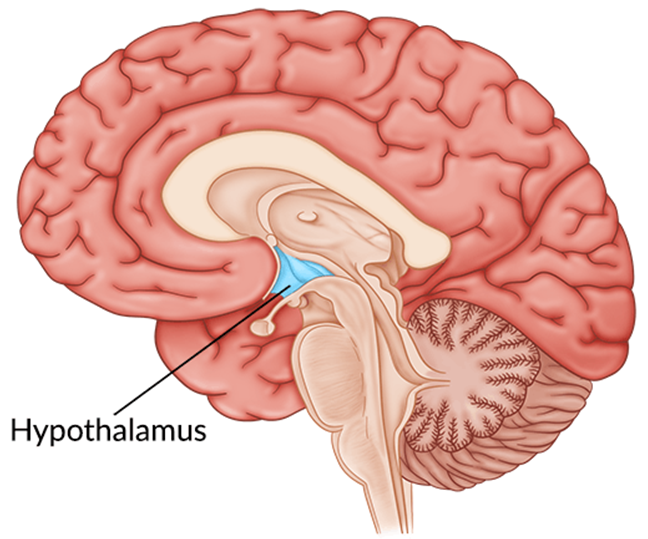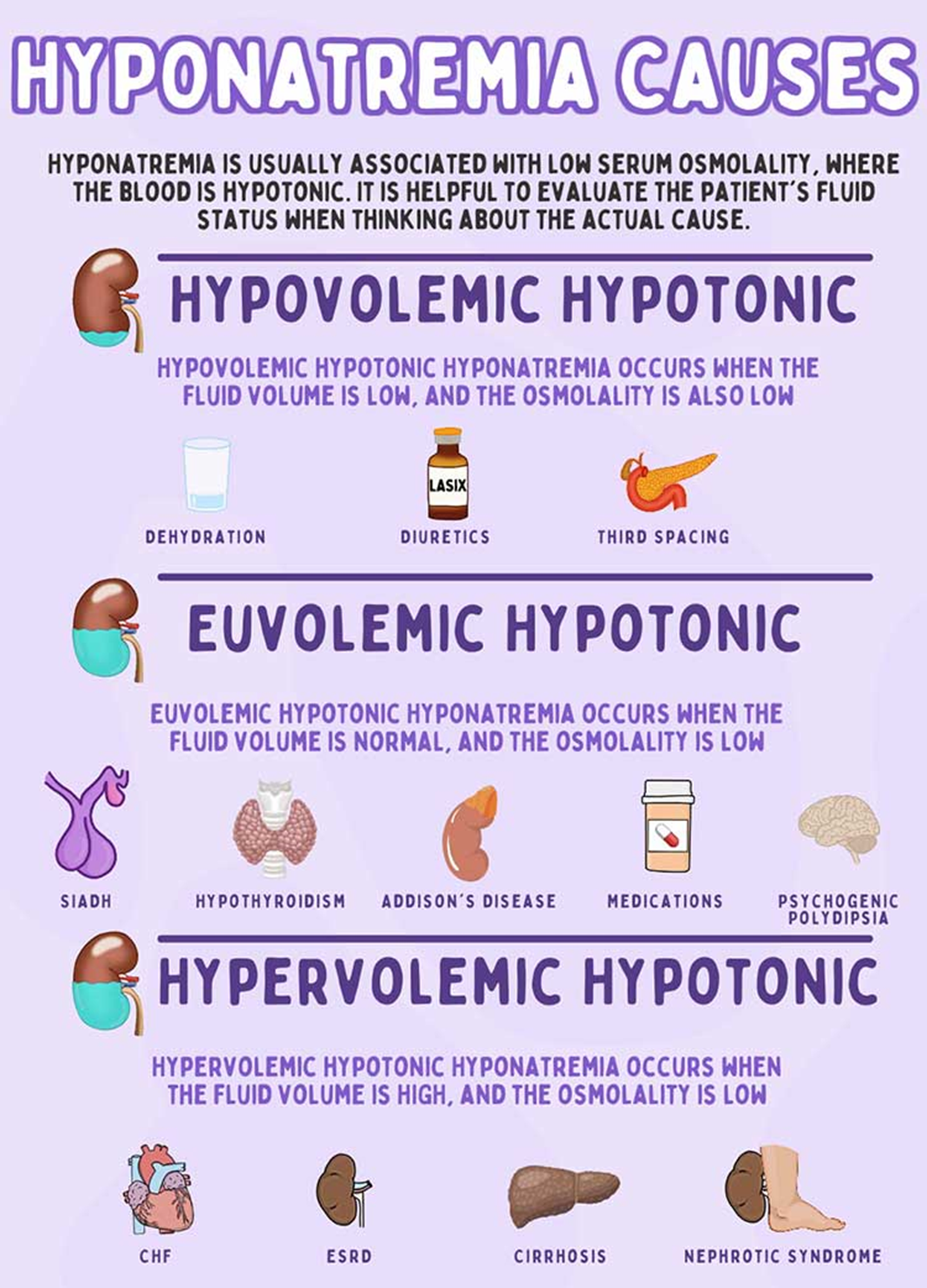The thirst mechanism is located in the:
Adrenal gland
Cerebral cortex
Pituitary gland
Hypothalamus
The Correct Answer is D
Choice A reason: This is incorrect because the adrenal gland is not involved in the thirst mechanism. The adrenal gland is responsible for producing hormones such as cortisol, aldosterone, and adrenaline, which regulate stress response, blood pressure, and metabolism.
Choice B reason: This is incorrect because the cerebral cortex is not involved in the thirst mechanism. The cerebral cortex is the outer layer of the brain that is responsible for higher cognitive functions such as memory, language, and reasoning.
Choice C reason: This is incorrect because the pituitary gland is not directly involved in the thirst mechanism. The pituitary gland is a small gland at the base of the brain that produces hormones that control growth, reproduction, and metabolism. However, the pituitary gland does secrete antidiuretic hormone (ADH), which is regulated by the hypothalamus and affects water balance in the body.
Choice D reason: This is correct because the hypothalamus is the location of the thirst mechanism. The hypothalamus is a part of the brain that regulates many bodily functions such as temperature, appetite, sleep, and emotions. The hypothalamus also monitors the blood osmolarity and triggers the sensation of thirst when the blood is too concentrated.

Nursing Test Bank
Naxlex Comprehensive Predictor Exams
Related Questions
Correct Answer is A
Explanation
Choice A reason: Renal failure can cause hyperkalemia because the kidneys are unable to excrete excess potassium from the body. This can lead to high levels of potassium in the blood, which can affect the heart and muscles.
Choice B reason: Diarrhea can cause hypokalemia, not hyperkalemia, because it can lead to loss of potassium from the gastrointestinal tract. This can result in low levels of potassium in the blood, which can also affect the heart and muscles.
Choice C reason: Blood transfusion can cause hyperkalemia if the blood is old or hemolyzed, meaning that the red blood cells have broken down and released potassium into the plasma. This can increase the potassium levels in the recipient's blood.
Choice D reason: Diaphoresis, or sweating, can cause hypokalemia, not hyperkalemia, because it can lead to loss of potassium from the skin. This can also lower the potassium levels in the blood.
Correct Answer is D
Explanation
Choice A reason: Stroke is not a cause of hyponatremia, but rather a possible complication of it. Hyponatremia is a condition where the sodium level in the blood is too low, which can affect the brain function and cause symptoms such as confusion, seizures, or coma. Stroke is a condition where the blood supply to a part of the brain is interrupted, which can cause brain damage and neurological deficits.
Choice B reason: Dehydration is not a cause of hyponatremia, but rather a cause of hypernatremia. Dehydration is a condition where the body loses more fluids than it takes in, which can affect the blood volume and the electrolyte balance. Dehydration can cause hypernatremia, which is a condition where the sodium level in the blood is too high, which can also affect the brain function and cause symptoms such as thirst, dry mouth, or lethargy.
Choice C reason: Increased secretion of aldosterone is not a cause of hyponatremia, but rather a cause of hypokalemia. Aldosterone is a hormone that regulates the sodium and potassium levels in the body by increasing the reabsorption of sodium and the excretion of potassium in the kidneys. Increased secretion of aldosterone can cause hypokalemia, which is a condition where the potassium level in the blood is too low, which can affect the muscle and nerve function and cause symptoms such as weakness, cramps, or arrhythmias.
Choice D reason: Congestive heart failure (CHF) is a cause of hyponatremia, as it is a condition where the heart is unable to pump enough blood to meet the body's needs. This can lead to fluid retention and edema, which can dilute the sodium level in the blood and cause hyponatremia. CHF can also stimulate the release of antidiuretic hormone (ADH), which increases the reabsorption of water in the kidneys and further lowers the sodium level in the blood.

Whether you are a student looking to ace your exams or a practicing nurse seeking to enhance your expertise , our nursing education contents will empower you with the confidence and competence to make a difference in the lives of patients and become a respected leader in the healthcare field.
Visit Naxlex, invest in your future and unlock endless possibilities with our unparalleled nursing education contents today
Report Wrong Answer on the Current Question
Do you disagree with the answer? If yes, what is your expected answer? Explain.
Kindly be descriptive with the issue you are facing.
